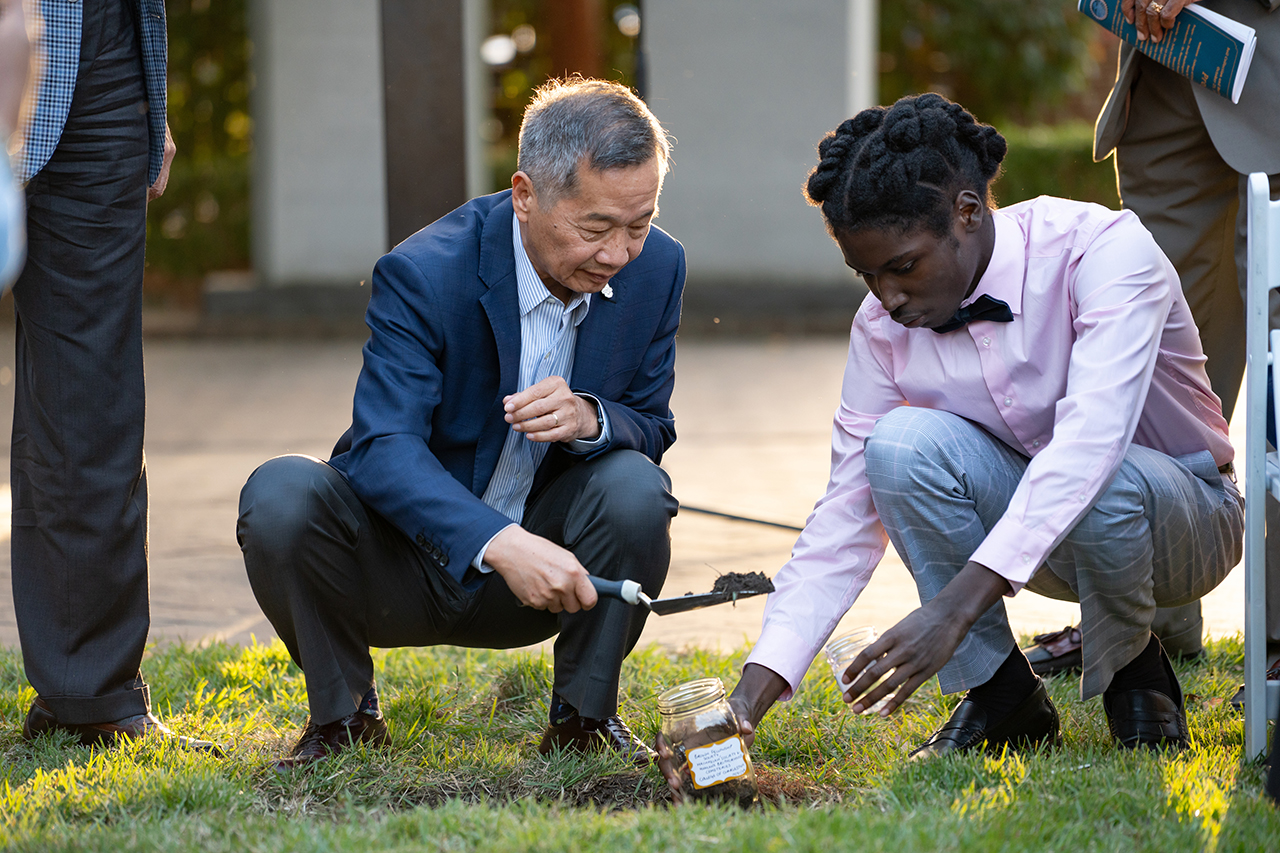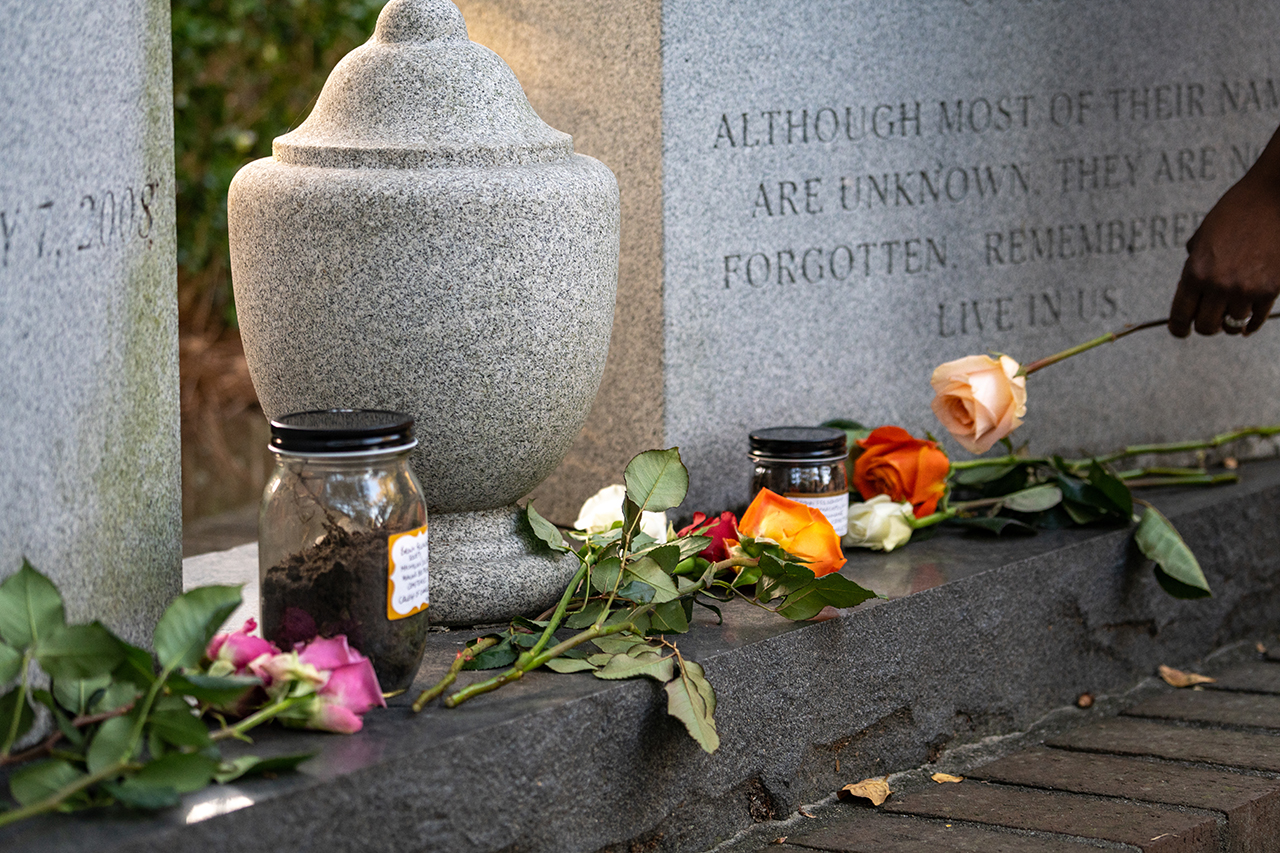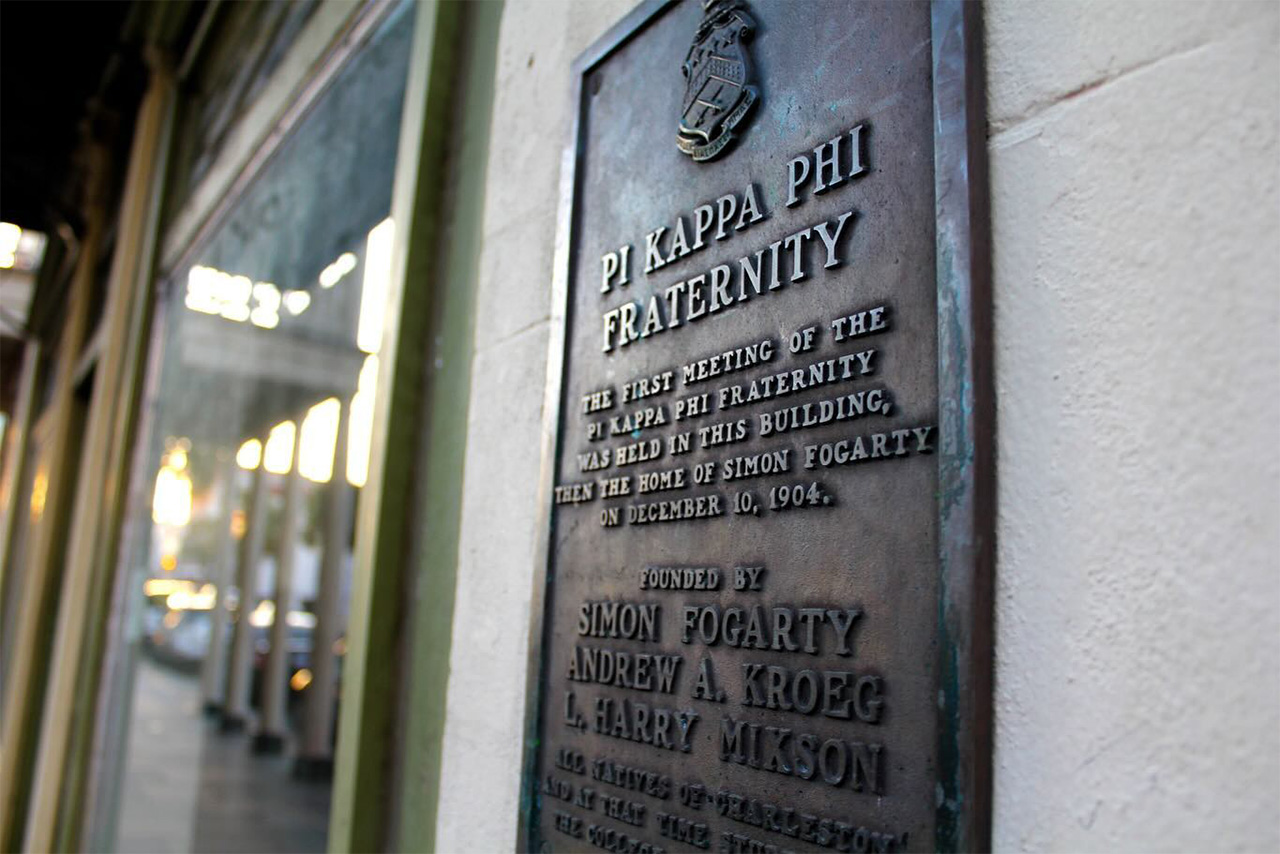College of Charleston Holds Burial Grounds Commemoration
On Monday, Oct. 21, 2024, the College of Charleston held a ceremony to collect soil from the site of three African American cemeteries formerly found at Rivers Green, behind the Marlene and Nathan Addlestone Library.

Above: College of Charleston President Andrew T. Hsu and 1967 Legacy Scholar Zaiid Stroman gather soil (Photos by Catie Cleveland)
On Monday, Oct. 21, 2024, the College of Charleston held a ceremony to collect soil from the site of three African American cemeteries formerly found at Rivers Green, behind the Marlene and Nathan Addlestone Library. The cemetery belonging to the Brown Fellowship Society, founded in 1790 by Charleston’s community of elite free persons of color, was the most prominent of the three.
College of Charleston President Andrew T. Hsu welcomed the crowd and spoke about the significance of the event.
“Throughout human history, the soil near gravesites and in burial grounds holds deep cultural, spiritual and historical significance,” he said. “The soil plays a crucial role in burial practices, mourning rituals and our understanding of past societies. The soil connects us and, quite literally, provides us all common ground. I am proud that the College of Charleston can add soil from three previous Black cemeteries once located here and combine them with other sacred spots from around Charleston. A university is and should be a place for unity and shared understanding.”

Bernard Powers, director of the College of Charleston’s Center for the Study of Slavery in Charleston and professor emeritus of history, was the master of ceremonies and spoke to the crowd about the mission of the center.
“The past is intimately connected to the present and at the center, we want to deepen the public’s understanding about the institution of slavery and the legacy which extends to the present. The disparities in health, education and wealth can all be traced back to the institution of slavery,” said Powers. “Public programming opportunities like tonight’s event help the center fulfill the goal of giving voice and presence to people and places that have been overlooked.”
Powers concluded with a quote from James Baldwin: “Not everything that is faced can be changed, but nothing can be changed until it is faced.”
1967 Legacy Scholar Zaiid Stroman, President Hsu and Anthony O’Neill gathered soil from Rivers Green. In the spring of 2025, the soil will be incorporated into a permanent memorial fountain honoring the 36 African ancestors whose remains were discovered during renovations to the Charleston Gaillard Center in 2013.
Joanna Gilmore, professor of museum studies and director of research and interpretation for the Anson Street Burial Ground Project, spoke about the history of the project: “As we continue to document these burial sites, we strengthen our commitment to acknowledging the full scope of our shared history. We honor the ancestors by bringing their stories to light, ensuring that their legacies are remembered and respected.”



